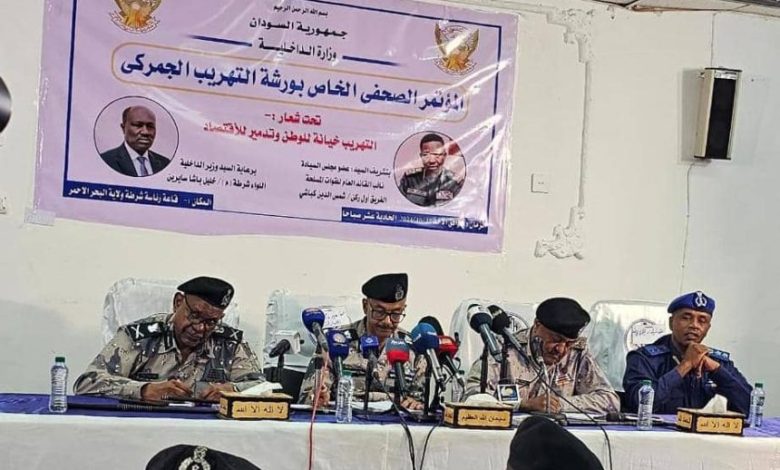Economic
Sudan’s Economy Under Threat from Customs Smuggling

Sudan Events – Rahab Abdullah
Sudan’s Minister of Interior, Major General Khalil Basha Sareen, has highlighted several challenges in combatting smuggling, particularly the country’s extensive borders with seven countries, as well as a Red Sea coastline that makes it challenging to monitor illicit trade. He noted the complexity of keeping up with evolving criminal tactics and the cultural perception in some tribes that smuggling is a noble endeavor, alongside difficulties in monitoring e-commerce.
Border Surveillance
Speaking at the opening session of a workshop on enhancing anti-smuggling efforts under the theme “Smuggling Betrays the Nation and Destroys the Economy,” Sareen emphasized that tackling smuggling is a complex process that requires coordinated actions, information exchange, border surveillance, data collection, modern equipment, prosecution, and continuous training.
Customs Director General Major General Salah Ahmed Ibrahim referred to the workshop as a strategic session to devise an anti-smuggling roadmap, enforce stricter penalties, and introduce modern equipment to support customs officers. Despite challenges, Sudan’s customs have maintained steady revenue and met collection targets as of September. Ibrahim stressed that smuggling depletes human resources through drug abuse, wastes economic resources, and impacts various sectors, requiring collective efforts to curb the trade.
Geographical Challenges in Control
Police Chief Abbas Abdelqader Mohamed Ali Dinar from the Red Sea state discussed the geographical obstacles, noting that Sudan’s borders with seven countries and proximity to Saudi Arabia result in cross-border tribal interactions, security challenges, and economic hardship, all of which fuel smuggling activities. Items frequently trafficked include weapons, drugs, human trafficking, agricultural products, livestock, and minerals.
Roles and Responsibilities
Sudan’s customs authorities operate under the Customs Law of 1986 (amended in 2010) to regulate goods, fight smuggling, and collect taxes. Customs control seeks to safeguard national resources, including raw gold, gemstones, and artifacts, which are often smuggled abroad due to their high value and ease of concealment. According to Dinar, surveillance also helps in price control, encouraging exports, reducing imports, and aligning Sudanese trade with global standards.
Key Findings on Smuggling and Impacts
Dinar detailed how smuggling brings vast, quick profits, prompting traffickers to bypass high customs and tax charges, avoid bans on items like alcohol and illegal drugs, and exploit weak awareness of customs risks. Some goods commonly smuggled include gold, foreign currency, raw materials, livestock, weapons, drugs, and consumables like sugar and fuel. This activity has severe economic impacts, eroding national revenue, destabilizing local industries, and burdening health and social sectors.
Anti-Smuggling Measures
Dinar advocated for flexible regulations, streamlined administrative procedures, and increased awareness of smuggling risks. He called for enhanced training, stricter penalties for offenders, and rewards for informants. Dinar also highlighted the need to adjust the training of customs officers and improve their professional conduct in managing smuggling prevention.
In line with the Customs Law, Articles 190 and 191 permit the confiscation of smuggled goods and transport vehicles, fines, or imprisonment of up to five years for smugglers. He urged authorities to consider more severe penalties, fitting the scale of the crime. Recent anti-smuggling operations in various Sudanese states have led to significant seizures, including drugs, gold, vehicles, fuel, medical supplies, and weapons.
Further Recommendations
The workshop recommended revising legislation to effectively prosecute smugglers and reform financial and economic policies to incentivize legal trade channels. Enhanced training, information sharing, and cross-agency coordination, particularly with Saudi coast guards, were also suggested to secure the Red Sea coastline.



